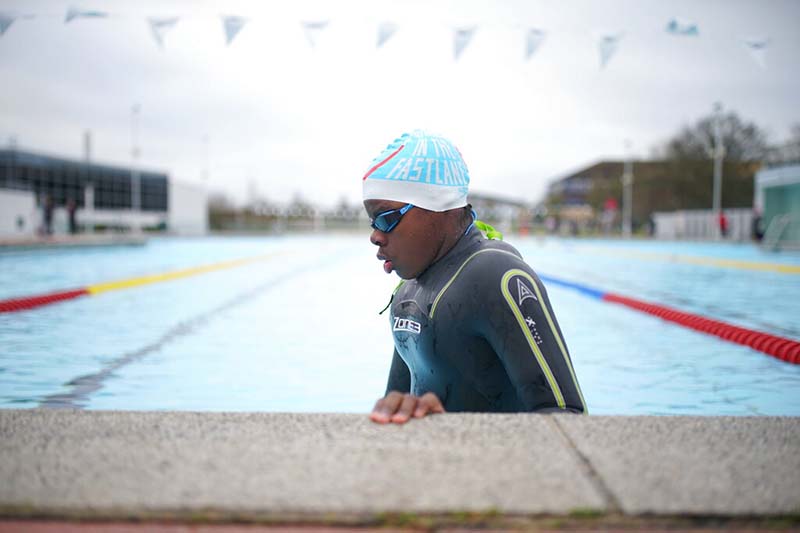

It’s been dubbed Happy Monday — the day people could put on a bathing suit and swim in an outdoor pool for the first time in months, or rusty golfers did what they could to hit their drives down the middle of the fairway.
Following a near three-month coronavirus lockdown, England embarked on a major easing of restrictions with families and friends able to meet up in outdoor spaces and many sports permitted once again.
And, as if right on cue, the weather is improving, with temperatures rising to levels more akin to southern Spain at this time of year.
Under Monday’s easing, groups of up to six, or two households, can socialize in parks and gardens once more, while outdoor sports facilities can reopen after the official end of the stark stay-at-home order, which contributed to a dramatic fall in new coronavirus cases.
Though many aspects of everyday life remain off-limits, many people are relishing their new freedoms, such as playing their outdoor sport of choice, from tennis to open-air swimming. Organized team sports, such as children’s football clubs, can start up again too.
One of the first — if not the first — to reopen its doors on Monday was the Morley Hayes Golf Club, near Derby in central England, with players teeing off at 12:01 a.m. for a seven-hole floodlit charity tournament.
The other parts of the UK — Scotland, Wales and Northern Ireland — are taking broadly similar steps. In Wales, thousands of people poured onto beaches and mountain spots over the weekend after the authorities lifted travel restrictions that have been in place since December.
Many aspects of England’s lockdown remain in place with the British government stressing that it’s taking a cautious approach to lifting the restrictions, not least because of rising cases in continental Europe.
Police welcomed the easing but stressed that officers will remain highly visible, including in open spaces, and won’t hesitate to prosecute anyone going beyond what is allowed.
“We will continue to respond quickly to house parties or dangerous raves, taking enforcement action by handing out fines,” said Deputy Assistant Commissioner Jane Connors, who leads the coronavirus response for London’s Metropolitan Police. “We make no apology for our tough stance on shutting down those large gatherings which risk public safety.”
Most nonessential businesses remain closed, along with pubs, restaurants, gyms, cinemas, theaters, museums and sports stadiums. And the government continues to urge people to work at home where they can, while traveling abroad is banned except for a few special reasons.
Though new coronavirus cases and deaths have fallen sharply in recent weeks to levels not seen since the autumn, the UK has suffered Europe’s deadliest outbreaks, with more than 126,500 coronavirus-related deaths.
Families who lost loved ones have started painting a mural made up of almost 150,000 hand-drawn hearts on the south bank of the River Thames in London opposite the Houses of Parliament to remember those who have died. The mural is expected to stretch more than a half-mile (nearly a kilometer) when finished.
The “Covid-19 Bereaved Families For Justice” group, which is urging the government to call an inquiry into the handling of the pandemic, said the unlicensed mural isn’t meant to be “political or antagonistic” but instead provide a “visual representation” of every life lost.
“Like the scale of our collective loss, this memorial is going to be enormous,” said Matt Fowler, co-founder of the group, who lost his father to the virus.
Restrictions have been eased as official figures showed more than 30 million people in the UK have received a first vaccine dose, accounting for about 57% of all adults. The UK is aiming to give everyone over the age of 18 a first jab by July, with second shots delivered within 12 weeks of the first.
Health officials say the program will slow down in April because of a squeeze on supplies, in part because of a delayed order from India. The European Union, which has clearly lagged behind the UK during the vaccination drive, has also threatened to block shipments of vaccines from factories in the bloc unless drugmakers — notably Anglo-Swedish firm AstraZeneca — send more shots to EU nations.